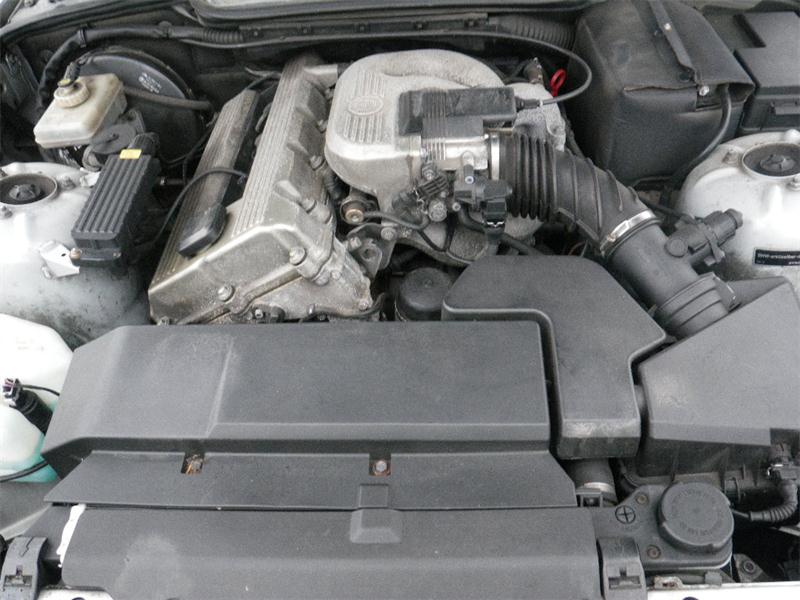Maintaining Your BMW 318ti: Essential Tips for Durability
Maintaining Your BMW 318ti: Essential Tips for Durability
Blog Article
Essential Considerations for Choosing the most effective Engine for Your Needs
In the world of choosing the optimal engine to fulfill your needs, a number of vital variables demand thorough factor to consider to guarantee optimal efficiency and effectiveness. From the nuanced equilibrium between power and performance to the often-overlooked aspects of upkeep and service demands, each aspect plays a pivotal role in determining one of the most suitable engine for your certain needs. As the complexity of engine technologies remains to progress, discerning the most suitable alternative necessitates a deep understanding of the interaction between numerous factors to consider. By checking out the detailed internet of variables that underpin this decision-making process, a more clear path arises towards choosing an engine that not just satisfies yet exceeds your expectations.
Power and Performance
When reviewing engines for ideal performance, it is essential to focus on both power outcome and efficiency. Effectiveness refers to how well the engine converts fuel right into useful energy. By carefully reviewing both power and effectiveness, you can choose an engine that provides optimum efficiency and meets your needs properly.
Fuel Performance and Economic Climate
In the realm of engine choice, the consideration of gas efficiency and economy holds extremely important relevance. Gas effectiveness refers to the engine's ability to transform gas right into power with very little waste, directly affecting operating expense and environmental sustainability. bmw 318ti. When picking an engine, assessing its gas economic climate is important to establish long-term savings and ecological effect. Engines with greater fuel efficiency not just decrease gas expenses but additionally lower carbon emissions, contributing to a greener operation.
Compatibility and Application
Thinking about the fuel efficiency and economic climate of an engine, the following crucial element to address is its compatibility and application within particular operational contexts. Compatibility refers to how well the engine integrates with the general system or equipment it powers. It entails elements such as physical dimensions, installing choices, electrical interfaces, and control systems. Making sure compatibility is vital to prevent concerns such as getting too hot, vibrations, or power imbalances (bmw 318ti).
Moreover, the application of the engine is just as crucial. Different engines are developed for specific purposes, whether it be industrial equipment, aquatic vessels, cars, or power generators. Understanding the designated application enables the selection of an engine that can supply the needed power outcome, torque, and functional attributes. A high-revving engine made for performance cars and trucks would not be ideal for durable building and construction equipment that requires high torque at low rates.
Maintenance and Service Needs
Maintenance and solution demands play an important duty in guaranteeing the long life and optimum efficiency of an engine. Routine upkeep is vital to protect against break downs, prolong the life-span of the engine, and preserve its efficiency. When selecting an engine, it is essential to consider the maker's recommended upkeep schedule and the availability of service facilities or certified professionals.
Variables such as the regularity of oil modifications, filter replacements, and overall examinations can dramatically impact the engine's efficiency. Some engines might need more constant servicing based upon their style and use, while others might have longer periods in between maintenance checks. It is crucial to stick to these service demands to stay clear check that of costly repair services and unexpected downtime.

Price and Budget Plan Considerations
Budget plan restrictions usually play a considerable role in the decision-making procedure when choosing an engine for a specific application. When thinking about the cost and spending plan ramifications of picking an engine, it is important to assess not only the preliminary acquisition price yet additionally the long-term expenses connected with upkeep, fuel usage, and potential upgrades or repair work. It is important to strike a balance between the in advance cost of the engine and its overall lifecycle expenses to guarantee that the picked engine continues to Our site be monetarily lasting throughout its functional life-span.
Factors such as fuel reliability, resilience, and effectiveness can directly influence the complete price of possession of an engine. While a much more expensive engine might have higher upfront costs, it might potentially result in reduced upkeep and gas expenses in time, therefore using better value in the long run. In addition, thinking about the schedule and cost of spare components, as well as the simplicity of upkeep and solution, can assist stop unexpected economic pressure in the future. By thoroughly examining these expense and spending plan considerations, you can make an informed choice that straightens with your financial restraints and functional demands.
Conclusion

Gas effectiveness refers to the engine's ability to transform gas right into energy with marginal waste, straight impacting operating costs and environmental sustainability.Aspects influencing gas efficiency consist of engine style, burning performance, and overall efficiency optimization. Additionally, choosing the suitable gas type and grade as suggested by the engine producer can even more enhance effectiveness and lengthen engine lifespan.
Engines with good use attributes and readily offered parts can reduce maintenance costs and reduce the time the engine is out of procedure - bmw 318ti. It is important to strike an equilibrium in between the ahead of time expense of the engine and its general lifecycle costs to make sure that the picked engine continues to be economically sustainable throughout its functional life-span
Report this page